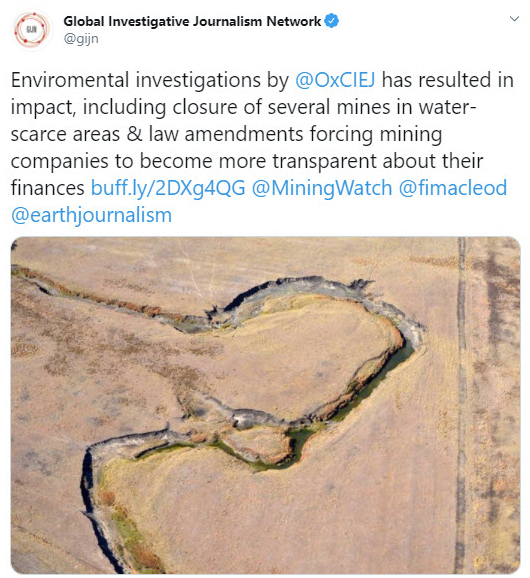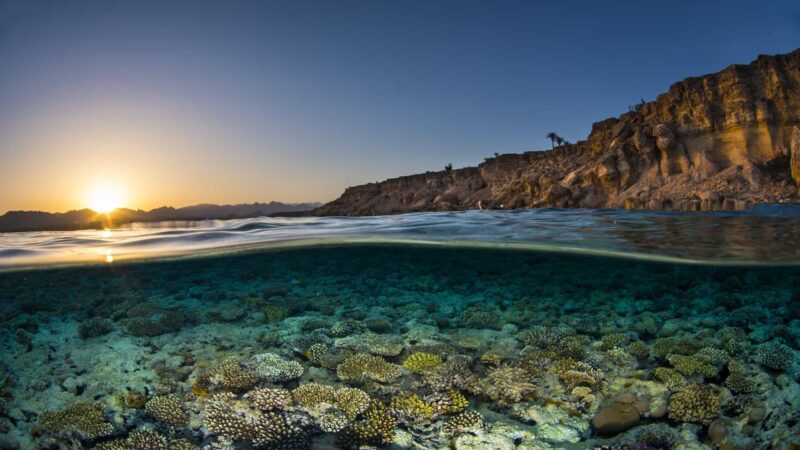“We need more discussions like this so that more journalists will have a better understanding about renewable energy, and therefore, we will have more coverage about it in the mass media.” —FRISKA KALIA, KBR Radio, following an Editor’s Forum in Indonesia on Renewable Energy
This month we’re looking at how a few of our projects and partners are continuing to adapt to the more virtual world we live in with the Covid-19 pandemic still restricting our movements and in-person interactions. That’s happening nearly everywhere we work, from East Africa to Indonesia. We’ve also put a spotlight on the stories produced through our two-year investigating wildlife trafficking project, which wrapped up last month. By provided 13 journalists with reporting grants, we helped expose more than 30 stories about the illegal wildlife trade in Europe, an important player as a source, market and trafficking route. And we’ve got an intriguing story out of Colombia about the impact in-depth reporting can have on local communities and policy making. Finally, we’re offering reporting grants to journalists in the Asia-Pacific region. Scroll down to learn more.
Impact: EJN-Supported Investigation Helps Halt Harmful Road Project Through the Amazon
Colombian journalist Andrés Bermudez Lievano used a grant from our Biodiversity Media Initiative in 2017 to report on a proposed new trade route that would have cut through several important ecosystems, including Amazon forests that are home to many unique and endangered species and indigenous communities. Bermudez’s reporting told a bigger story about some of the main challenges facing Colombia – organized crime and development that didn’t account for the threats it posed to the environment. During his investigation, he also discovered that several local communities were coming up with their own alternatives to the road project that would protect their natural resources while also stimulating trade and economic growth. Bermudez’s seven-story series gained traction in local media and started to drive a conversation, so much so that Colombia’s president eventually cancelled the road’s construction. This is part of an ongoing series of stories that seek to highlight in impact of the reporting we support and inspire other journalists to pursue hard-hitting investigations. Read more
EJN Shines a Light on Europe’s Many Roles in the Illegal Wildlife Trade
 Our two-year project revealed that wildlife trafficking isn’t just a problem for Asia, Africa and South America. Europe too plays an important role as a source, market and trafficking route. Over the course of the project we supported investigations by 13 journalists who produced more than 30 stories exposing everything from illegal tiger farms in the Czech Republic to songbird trafficking syndicates in Italy and Malta to a reptile market in Germany that serves as a hub for wildlife trafficking to the poorly understood and poorly regulated trade in ornamental tropical fish, a story that recently led to a Parliamentary inquiry into the trade in the Netherlands (more on that in a future newsletter). And we partnered with Oxpeckers, an investigative environmental journalism outlet based in South Africa, to develop #WildEye, the most comprehensive collection of data on seizures, arrests, court cases and convictions related to the illegal wildlife trade in Europe. Read more
Our two-year project revealed that wildlife trafficking isn’t just a problem for Asia, Africa and South America. Europe too plays an important role as a source, market and trafficking route. Over the course of the project we supported investigations by 13 journalists who produced more than 30 stories exposing everything from illegal tiger farms in the Czech Republic to songbird trafficking syndicates in Italy and Malta to a reptile market in Germany that serves as a hub for wildlife trafficking to the poorly understood and poorly regulated trade in ornamental tropical fish, a story that recently led to a Parliamentary inquiry into the trade in the Netherlands (more on that in a future newsletter). And we partnered with Oxpeckers, an investigative environmental journalism outlet based in South Africa, to develop #WildEye, the most comprehensive collection of data on seizures, arrests, court cases and convictions related to the illegal wildlife trade in Europe. Read more
To learn more about that platform, read this great write-up by the Global Investigative Journalism Network: Powering Up Geo-Journalism for Investigative Environmental Reporting.
An Experiment in Virtual Training Gets Good Marks in East Africa
Back in March a group of 12 journalists and several trainers were looking forward to a workshop on conservation and the wildlife trade set amid the wilds of Laikipia, Kenya. We all know what happened next. So instead of meeting in person, our East Africa Wildlife Journalism project decided to go virtual, drawing on some creative tools and experiments to keep everyone engaged and interested. “Digital reporting is becoming a necessity,” one of the participants said following the three-week online training. And it’s something we’ll be talking about a lot more at EJN as we work to innovate and maintain our support and outreach in these exceptional circumstances. Read more
Editor’s Forum in Indonesia Puts a Spotlight on Sluggish Growth of Renewable Energy
Discussions about a green recovery have come to the forefront during the Covid-19 pandemic. But many countries aren’t yet pushing changes that could improve environmental health and economic growth. In Indonesia, for instance, the government is failing on its commitment to reduce the use of fossil fuels, according to editors who joined a recent virtual roundtable on renewable energy. That means journalists need to expose problems in Indonesia’s energy sector and investigate the actions of powerful officials, the editors concluded. Hosted by the Jakarta Alliance of Independent Journalists, the forum is part of a larger project supported by EJN to encourage reporters to do more in-depth stories about renewable energy and the challenges it faces in a country where coal is a key commodity. Read more
Data Journalism Hackathon Goes Virtual to Tackle Environmental Issues
It’s not just workshops and trainings that have gone online. Our media grantees at the Indonesian Data Journalism Network also took their latest hackathon virtual, offering dozens of journalists, graphic designers, and programmers around the country access to courses, presentations, discussions and virtual collaboration on environmental data. Initially scheduled as a roadshow through five different cities across Indonesia’s sprawling archipelago, the hackathon ended when five teams were selected by a panel of judges to receive a grant for a data-driven reporting project that will investigate some of the most pressing environmental challenges the country is facing. Read about the winners.
Fellowships Awarded to Journalists to Cover UN Oceans Conference
EJN has selected nine journalists from around the world to cover the next United Nations Oceans Conference. The conference, which will likely be held in 2021, will focus on the conservation and sustainable use of oceans, seas and marine resources. Read more
Opportunities
- Asia-Pacific Story Grants: We’re offering grants to journalists in the Asia-Pacific region to support reporting on climate and environmental change and how it intersects with the social, economic and public health challenges the world is currently facing. DEADLINE: 28 August 2020
What we’re reading, watching, listening to…
- Read: Where Will Everyone Go? A model of how climate refugees move across borders (ProPublica)
- Listen: Financing the Forests (BBC World Service Podcast “People Fixing the World”)
- Learn: A Science Writer’s Guide to Data Journalism (Open Notebook)
Connect with Us
Follow us on Facebook, Twitter and Instagram to see how we’re covering today’s most pressing environmental issues and visit our website to read our latest stories.
(Banner photo: Underwater seascapes by Anders Nyberg)
